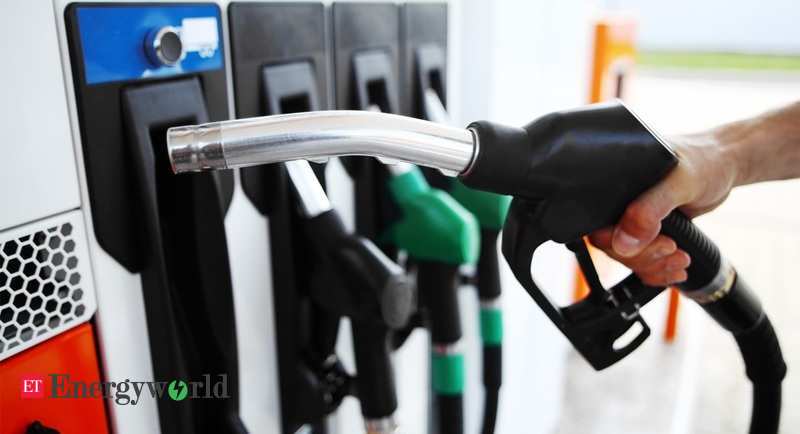The island of Usedom in northern Germany was not quite as popular this summer as in the previous two years. Nevertheless, the employees on the Baltic Sea island were not entirely dissatisfied with the number of bookings this season. The number of reservations was only around 20% below that of the two previous years, says Michael Raffelt, founder of the Hotel Hanse-Kogge in the municipality of Koserow and chairman of the Hotel Association Insel Usedom. “It wasn’t a bad summer either,” he says. Due to the pandemic, an unusually large number of Germans spent their holidays on the Baltic Sea in the past two summer seasons instead of traveling abroad. “Now we have to get used to fighting for every guest again,” says Raffelt.
The number of tourists on Usedom approached the pre-pandemic level in 2022
Traveling outside of Germany again
Traditionally, around two-thirds of Germans spend their holidays abroad. But the pandemic changed that as COVID-19 health and safety measures made international travel difficult. This summer, however, many German holidaymakers were eagerly drawn abroad. According to the German Travel Association, package tours to destinations in the Mediterranean region were particularly popular. The island of Mallorca, Spain, Greece and Turkey were particularly in demand. Bookings even exceeded those of 2019 before the pandemic.

The Spanish island of Mallorca was one of the most sought-after travel destinations for German tourists this summer
Tour operator Dertour observed similar trends. After two years without a holiday abroad, many German travelers seemed willing to spend a little more than in the years before the pandemic. According to recently published figures from Dertour, spending on hotels outside of Germany increased by around 51%. Many travelers booked high-end hotels and, according to the organizer, stayed a day longer on average.
The situation in Germany is somewhat different. On Usedom, for example, Michael Raffelt noticed a great deal of uncertainty among his guests this summer. Many bookings were made at short notice, often just 14 days in advance. In his opinion, this is partly due to rising prices in Europe. Guests want to wait and see how they develop and only then “decide whether they go on vacation at all”. And once they decide to travel, they spend less than usual. “Many guests no longer go to the restaurant every day,” he says.
Hotels in crisis mode
According to the German Hotel and Restaurant Association (DEHOGA), the sales figures in the German hospitality industry remain below the pre-pandemic level. The situation is “extremely challenging” because the industry is “confronted with exponential costs in the areas of energy, food and personnel” at the same time, says DEHOGA boss Guido Zöllick.
In addition, more than 60% of the catering establishments were still looking for staff at the start of the season in June. “Because of the lack of staff, companies are reducing their opening hours and canceling events,” says Zöllick. But despite the challenges, business picked up after COVID-related regulations were lifted in May.

Staff shortages remain one of the biggest problems in the hospitality industry
The Ministry of Tourism in Mecklenburg-Western Pomerania also confirms this positive trend. The region in north-eastern Germany had a successful summer tourist season. The utilization of all tourism capacities was 87% in July and 80% in August. Schleswig-Holstein, on the other hand, reported an increase of 4.4 percent in overnight stays in the first half of the year compared to the same period in 2019. The North Sea Tourism Association is now expecting about the same summer numbers as before the pandemic. However, according to the organization, guests have recently become “more price-sensitive” and have been more reluctant to pay for leisure activities and gastronomy.
Low water level and camping success
Daniel Thiriet from the IG RiverCruise industry group also saw numerous challenges for his industry this summer. A persistent drought led to low water levels in many places and made river cruising difficult. Although there have been few outages and complete route closures, companies have had to make great efforts to keep operations running. On the German Rhine, for example, ships could no longer operate in some places, so that passengers had to be transported by bus in certain sections.

Low water levels made it difficult to carry out boat trips on the Rhine this summer
One of the travel industries in Germany that has grown during the pandemic is camping. Germany’s campsites set a new record in the first half of the year. According to the Federal Association of the Camping Industry in Germany (BVCD), the number of overnight stays rose by 11% to 14.2 million compared to the same period last year. But the joy should be short-lived. “In view of the uncertain forecasts and the current burdens on consumers, we are looking forward to autumn with cautious expectations,” says BVCD boss Christian Günther.
What will the energy crisis bring?
Back on the island of Usedom, Michael Raffelt is also concerned about the future. “We have so many overlapping issues right now, it’s scary,” he says. He is particularly concerned about the forecast high energy costs – some hotels on Usedom have already had their energy contracts terminated by the suppliers. It remains to be seen what new conditions – and energy prices – it will be. Raffelt is not expecting anything positive. “After all, we’re not an industry that can pass all costs on to customers,” he says. Otherwise, this would be reflected directly in the booking figures.
This article was translated from German.














